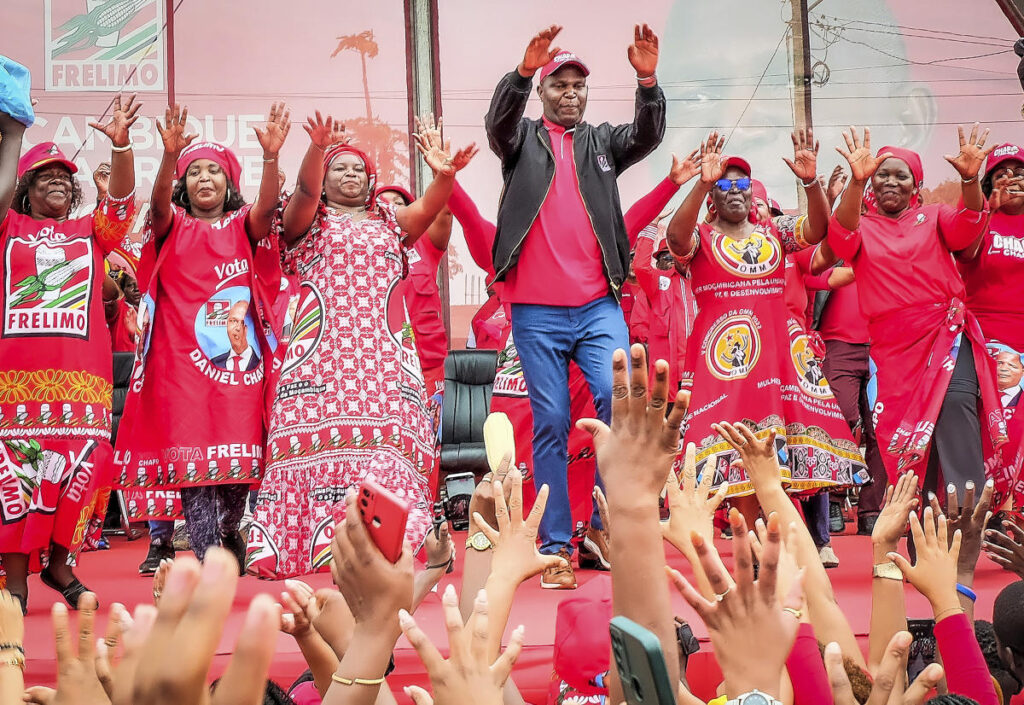MAPUTO, Mozambique (AP) — Mozambicans are expected to turn out in large numbers Wednesday an election that after his two terms, a successor will be chosen for President Filipe Nyusi.
Nearly 17 million voters in the southern African country of 31 million people are registered to vote for the next president, along with 250 parliamentarians and provincial assemblies.
While the ruling Front for the Liberation of Mozambique, Frelimo, is widely expected to retain power, at least four candidates have campaigned to bring change to a country facing a years-long jihadist insurgency in the north and long coastline on the Indian Ocean is vulnerable. to extreme climate conditions such as flooding.
More than 1.3 million people have been forced to do so flee their homes as a result of the uprising, while millions of others have faced severe food shortages due to the drought.
Local elections held in Mozambique a year ago were marred by allegations of electoral fraud and led to violent protests in the capital Maputo and surrounding areas. This time, concerns have been tempered.
Here’s what you need to know about Wednesday’s vote:
Who’s running?
The ruling Frelimo party, which has been in power since Portugal’s independence in 1975, has listed David Chapo as its presidential candidate. Chapo, 47, is a former governor of the southern province of Inhambane, a strong driver of the country’s tourism economy.
Chapo is expected to face the most competition from 50-year-old Venacio Mondlane, a banker and forestry engineer who is running as an independent candidate under the slogan “Save Mozambique, this land is ours” and has drawn large crowds.
Mondlane is backed by the Optimist Party for the Development of Mozambique, or Podemos, founded by dissidents from the ruling party. He ran for mayor in last year’s local elections, and his supporters claimed he won but was robbed.
The Democratic Movement of Mozambique has engaged Lutero Simango. His party was founded in 2008 and broke away from the rebel group that has now become the opposition party Mozambique National Resistance, or Renamo. Simango’s party resonates with the youth for its policies on inequality and employment.
Renamo is represented by Ossufo Momade, who became party leader after the death of the charismatic Afonso Dhlakama, a former rebel leader who died in 2018.
What are the problems?
Mozambique is battling an Islamic State-linked group that has carried out attacks on communities in the northern province of Cabo Delgado since 2017, including beheadings.
About 600,000 of the 1.3 million people who fled have since returned home, many to shattered communities where homes, markets, churches, schools and health facilities have been destroyed, the United Nations said earlier this year.
The candidates have pledged to tackle development issues exacerbated by the insurgency stopping a crucial gas project by the French energy company TotalEnergies in northern Mozambique as a result of the extremist rebel uprising there.
Mozambique also faces high levels of unemployment and hunger, which are exacerbated by Severe drought caused by El Nino. According to the UN World Food Program, 1.3 million people face severe food shortages.
The ruling Frelimo party has been tainted by corruption scandals, including the so-called tuna bond scandal in which former Finance Minister Manuel Chang was jailed earlier this year for receiving payouts to arrange secret loan guarantees for government-controlled fishing companies.
The loans were looted and Mozambique ended up with $2 billion in ‘hidden debts’, leading to a financial crisis when the International Monetary Fund cut off financial support.
When will we know the election winner?
There is only one day of voting and counting begins immediately, with partial results announced as they trickle in. The official results will be announced after 15 days by the National Electoral Commission and then validated by the Constitutional Council. Each party can submit objections to the council, which will decide whether they are justified.
___
Magome reported from Johannesburg.
___

